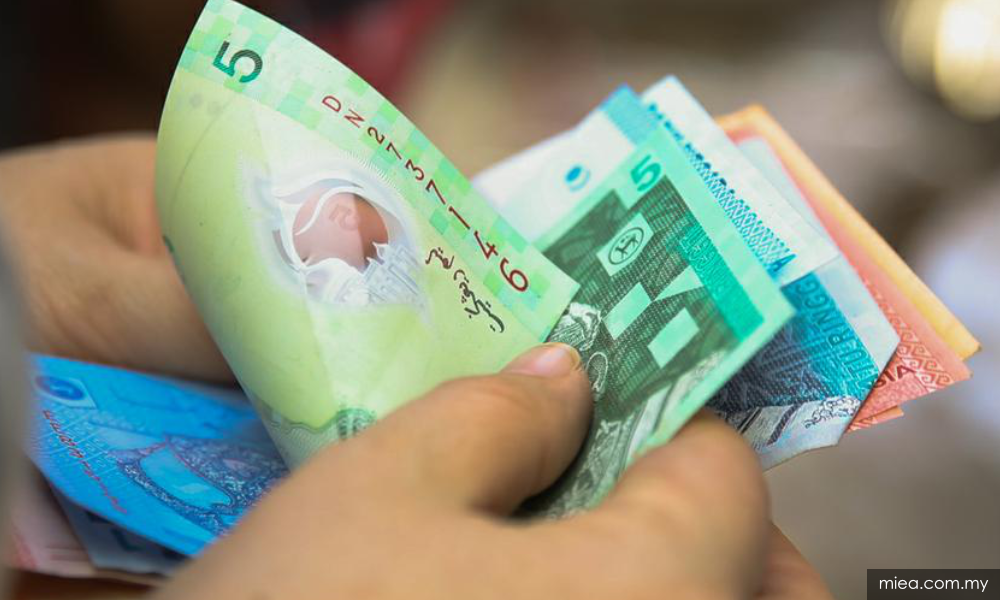The administration is stuck between a rock and a hard place as there are countless legacy issues that constrain government spending, in the midst of the growing pressure for intervention to stabilise prices in the market.
Add that to the growing anxiety over the increased cost of living the ringgit slides further. Not to mention the erratic weather patterns and climate-related challenges.
The government cannot just spend its way out of this situation. Government’s debt to GDP ratio is at 62 percent (not including contingent liabilities), trending down from a Covid-19 high of 64.5 percent, but still significantly higher than pre-pandemic levels.
To service those debts, the government has allocated 12.6 percent in Budget 2024, or RM49.6 billion, which is slightly less than the amount allocated for government subsidies and social assistance programmes.
Malaysia works hard for less
With limited financial headroom and an increasingly pessimistic global economic environment, it is necessary that every ringgit in the budget is leveraged efficiently.

We rely on our civil servants to make the right decisions, ensure that leakages are plugged, and government spending gives good value and economic multiplier effects.
Speed is of the essence here; businesses need faster approvals and facilitation in order to keep the economy growing and the lag time between announcement and implementation has to be reduced.
For Malaysia to thrive, especially in these uncertain times, our whole society needs to embrace a performance-based culture.
We cannot afford to be spendthrift, but that does not mean avoiding all risks. We are often reminded of the need to increase our productivity, which should not be understood as simply working more hours.
According to 2019 data, Singaporean workers work harder by 133 hours annually (or about three hours a week) but are three times as productive. Clearly, we already work hard, so how can we make that work more valuable?
It is important that government assistance is not limited to the availability of cheaper loans and grants, but also developmental assistance that helps Malaysian businesses climb up the value chain.
There are already numerous government agencies established for this purpose, so how can their offerings be further improved to help more local businesses grow and become globally competitive?
This is also necessary for the creation of skilled jobs to stem the outflow of talent and underemployment in the Malaysian workforce.
Sustainable solutions and equitable growth
In this regard, the budget’s focus on sustainability is lauded. Serious attention to developing our capacity in renewable energy, waste management, climate mitigation, and adaptation is the right, much-needed step to ensure the country’s economic and environmental resilience.
It is also a vote for science and greater research, which are needed to drive this agenda forward. Perhaps we need a so-called Climate Czar with the authority and reputation to ensure there is progress on this path, which will require serious participation from all segments of society.

With the available fertile land and natural resources, multiple research institutions and entrepreneurial pep in this country, Malaysia has significant opportunities to be a serious contender in this crucial sector.
The public can already see and feel firsthand how damaging climate change can be, so the government should be a source of leadership and inspiration to find lasting solutions.
By mainstreaming the push towards finding new sustainable growth industries and spreading them across the country, it creates a path towards inclusive and equitable development.
It’s never easy being the government, even more so now. Malaysia, as a small open economy, must be prudent but wise in its finances.
There are no quick fixes and plans are only as good as their implementation, nor can their goals be reached without a public-private sector relationship that is mutually beneficial and aligned on values. - Mkini
LUTFI HAKIM ARIFF is co-founder and podcaster at Waroeng Baru, a not-for-profit collective to promote democratic participation and resilience. He is also the co-author of the book ‘Parliament, Unexpected’ and an unrepentant believer in the power of local independent media. Lutfi tweets at @ltf_ha.
The views expressed here are those of the author/contributor and do not necessarily represent the views of MMKtT.




No comments:
Post a Comment
Note: Only a member of this blog may post a comment.